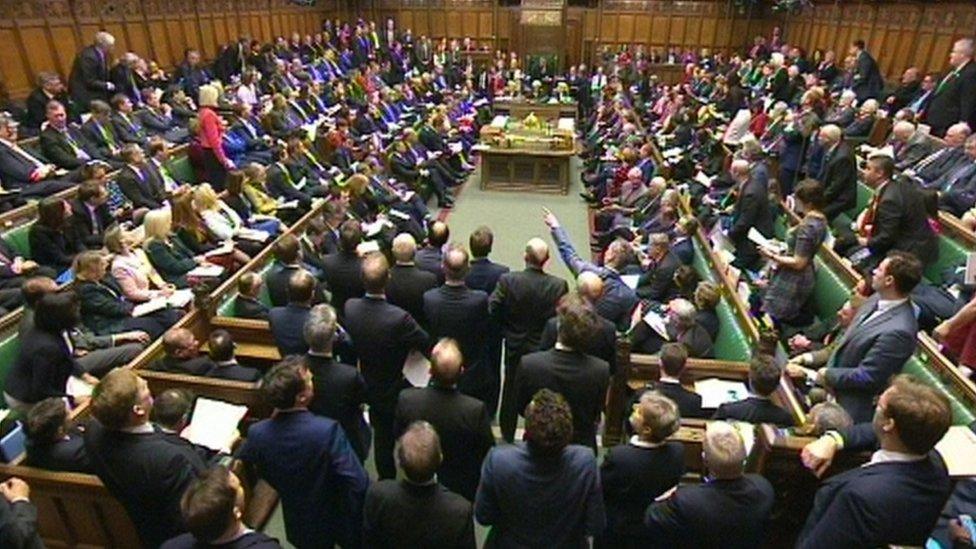Boundary Commission review to cut six Scottish MPs
- Published

A review is under way that will cut the number of Scottish seats in the House of Commons from 59 to 53.
The move, which was outlined in 2011, will see the total number of MPs across the UK reduced from 650 to 600.
England will have its number of seats reduced from 533 to 501; Wales will be reduced from 40 to 29; and Northern Ireland will lose one of its 18 seats.
The Boundary Commission for Scotland, external has until 1 October 2018 to recommend the new constituency boundaries.
The rules require broadly equal numbers of voters in each constituency, except where a constituency is larger than 12,000 sq km, and also limit the size of a constituency to 13,000 sq km.
The average size of the electorate per constituency across the UK is 74,769, with the electorate of each constituency having to be within 5% of that - meaning each must have between 71,031 and 78,507 voters.
'Significant change'
The constituencies of Na h-Eileanan an Iar (Western Isles) and Orkney and Shetland are protected by law, so are not subject to the review.
Lord Matthews, deputy chairman of the Boundary Commission for Scotland, said: "The rules within which we work put great emphasis on equal electorates across the UK, and as a result the review is likely to result in significant change for many constituencies in Scotland.
"Consultation remains a key part of the review process and we will fully consult upon our proposals in due course so people across Scotland can feed in their views."
Scotland elected 72 MPs to serve in the House of Commons until being reduced to 59 ahead of the general election in 2005.
This was because it was felt that the creation of the Scottish Parliament meant Scotland no longer needed to be over-represented in terms of its population size.
The SNP won 56 of the 59 seats at the most recent election, with Labour, the Conservatives and Liberal Democrats winning one each.